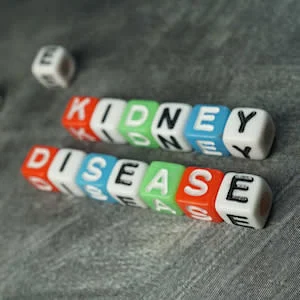The main results of the DAPA-CK trial were presented today at ESC Congress 2020. Findings showed that dapagliflozin reduces the risk of kidney failure, death from cardiovascular causes or heart failure hospitalisation and all-cause mortality in chronic kidney disease patients with or without type 2 diabetes.
The goal of the DAPA-CKD trial was to test the hypothesis that treatment with dapagliflozin is superior to placebo in reducing the risk of renal and cardiovascular events in patients with chronic kidney disease (with or without type 2 diabetes) and who were already receiving a stable dose of either an ACE inhibitor or an ARB.
The primary composite endpoint of the study was worsening kidney function or death due to kidney disease or cardiovascular disease. The secondary endpoints were a composite endpoint of worsening kidney function or death from kidney failure; a composite endpoint of hospitalisation for heart failure or cardiovascular death; and all-cause mortality.
The study was conducted with 4,304 patients from 386 centres in 21 countries. All patients had an eGFR ≥25 and ≤75 mL/min/1.73m2; urinary albumin to creatinine ratio between ≥200 mg/g and ≤5000 mg/g; and were on a stable, maximum tolerated dose of an ACE inhibitor or ARB (unless contraindicated) for at least four weeks.
Patients were randomly allocated to dapagliflozin 10 mg or placebo once daily in addition to standard of care (i.e. an ACE inhibitor or ARB). The average age of participants was 61.8 years and 66.9% were male. A total of 2,906 (67.5%) patients had type 2 diabetes.
Results at follow-up of 2.4 years showed 197 primary endpoint events with dapagliflozin and 312 with placebo. The benefit of dapagliflozin on the primary endpoint was consistent in patients with and without type 2 diabetes.
Compared to placebo, dapagliflozin reduced all three secondary endpoints including worsening renal function or death from kidney failure, hospitalisation for heart failure or cardiovascular death, and all-cause mortality. Safety and tolerability of dapagliflozin was better with 5.7% patients in the placebo group discontinuing the study drug due to an adverse event and 33.9% experiencing a serious adverse event compared to 5.5% discontinuing the study drug in the dapagliflozin group and 29.5% experiencing a serious adverse event. Diabetic ketoacidosis was not reported in the dapagliflozin group but occurred in two patients in the placebo group. Neither diabetic ketoacidosis nor severe hypoglycaemia were observed in patients without type 2 diabetes.
Study author Professor Hiddo J.L. Heerspink of University Medical Centre Groningen, the Netherlands, said: “DAPA-CKD showed that dapagliflozin reduced the risk of worsening kidney function or death from cardiovascular or kidney disease in patients with chronic kidney disease with and without type 2 diabetes. The results highlight the medicine’s potential to benefit patients with chronic kidney disease who are in need of improved treatment options.”
Source: ESC Congress 2020
Image Credit: iStock










